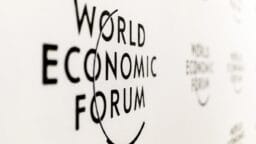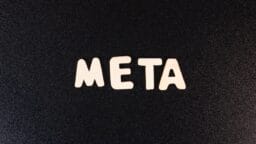Congressman Himes Voices Concerns Over H-1B Visa Fee Hike
HARTFORD, CT – Congressman Jim Himes (D-CT) expressed his unwavering support for the apprehensions raised by the Global Organization of People of Indian Origin (GOPIO), particularly in light of the Trump Administration’s substantial increase of $100,000 to the H-1B visa fees.
He cautioned that such a policy could precipitate a considerable exodus of highly skilled talent from the United States.
During a virtual assembly held on October 9, 2025, with GOPIO-CT, convened by Chairman Dr. Thomas Abraham, Himes—who occupies the pivotal role of Ranking Member of the House Permanent Select Committee on Intelligence—articulated that the departure of esteemed professionals would constitute a “great loss.”
He further emphasized the urgency of resolving tensions in U.S.-India relations, while recognizing that collaboration persists in areas such as commerce, trade, and defense.
Representatives from GOPIO articulated their concerns that the new policy would significantly undermine small and medium-sized enterprises in America.
GOPIO-CT President Mahesh Jhangiani contended that the $100,000 fee would be “unbearable for small and medium businesses,” even as larger corporations might absorb the costs.
Business leaders underscored the direct and detrimental ramifications of this fee increase. Prasad Chintalapudi, Founder of Panzer Solutions, highlighted that small enterprises dependent on H-1B talent are simultaneously “creating local employment and preserving jobs in the U.S.”
He noted that many prominent CEOs, including Sundar Pichai, Satya Nadella, and Aravind Krishna, trace their roots back to the H-1B program.
Attorney Nandita Ruchandani, representing Cameron Engineers, elucidated the critical roles H-1B visa holders fulfill—ranging from healthcare professionals in underserved communities to engineers and educators.
She emphasized that these individuals contribute to local services by purchasing homes and paying taxes, despite their Social Security contributions remaining inaccessible until they secure permanent residency.
Ruchandani cautioned that the financial strain could lead to the closure of American firms, particularly smaller enterprises like engineering companies involved in municipal water systems, which operate with narrow profit margins that cannot accommodate such exorbitant fees.
“The chaos triggered by the sudden imposition of this substantial fee has already disrupted numerous lives and businesses,” she lamented.
Dr. Abraham argued that restricting access for highly qualified immigrants could impair America’s long-term economic standing. He referenced public data indicating that the H-1B program yields an annual benefit of over $200 billion to the U.S., juxtaposed against a mere cost of $8.5 billion.

“By erecting barriers to highly qualified individuals seeking employment in the USA, the nation will forfeit future advantages if these individuals choose opportunities in countries like Canada, Germany, and China, which are extending welcoming offers,” Dr. Abraham asserted.
Jhangiani further conveyed community apprehensions regarding the Trump Administration’s perceived “anti-India policies.” Dr. S.K. Lo, Chairperson of the Asian American Unity Coalition, voiced support, asserting the necessity for a united response to such pressing issues.
Source link: Indiawest.com.






